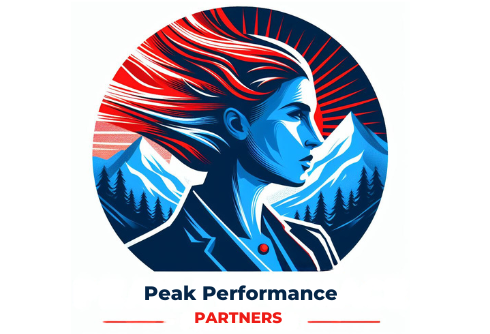Let’s start by exploring the critical role coaching plays in nurturing leadership skills. Leadership coaching is a specialized type of personal development where focus is specifically cast on enhancing one’s ability to lead effectively. This isn’t just about developing the hard skills associated with leadership; it’s also about honing emotional intelligence, decision-making, and strategic thinking.
You’re going to find out about the unique aspects of leadership coaching that set it apart from other forms of professional coaching. While executive coaching may aim at improving an individual’s performance in a corporate context, leadership coaching is broader, targeting aspects that affect various facets of an individual’s life.
In my opinion, the real payoff comes when we look at the combined effect of improved leadership skills on both the individuals and their organizations. Strong leadership can propel a company forward, help navigate tough situations, and foster a positive work environment that encourages everyone to contribute their best.
Finally, you’ll see how effective leadership is not just a boon for today’s fast-paced and ever-changing work environment, it’s a necessity. Organizations are rapidly recognizing that empowering their employees with leadership skills isn’t a luxury – it’s critical for survival and success.
Essential Coaching Techniques for Aspiring Leaders
Effective leadership doesn’t happen overnight, it’s crafted through commitment, strategy, and the right guidance. To steer emerging leaders towards success, coaches employ a range of techniques designed to enhance key leadership competencies. One fundamental approach is the setting of SMART goals. By ensuring that objectives are Specific, Measurable, Achievable, Relevant, and Time-bound, leaders can create a road map to success that is both clear and actionable.
Another indispensable skill set that coaching can impart to budding leaders is the art of active listening and empathetic communication. This isn’t just about hearing what’s said, but also about understanding the emotion and intent behind the words. When leaders master these communication skills, they are better equipped to build strong teams, resolve conflicts, and inspire trust.
Nurturing a growth mindset is also critical. Leaders are often faced with setbacks and obstacles. Coaches emphasize the importance of resilience, teaching leaders how to view challenges as opportunities for learning and growth instead of insurmountable hurdles. This perspective shift can make all the difference in leading a team or organization through turbulent times.
Lastly, the ability to receive and utilize feedback constructively is a marker of strong leadership. A coach will help leaders develop thick skin and an open mind, encouraging them to seek out constructive criticism and to use it as a stepping stone for continual self-improvement and team development.
Each of these techniques lays the groundwork for not just achieving short-term objectives, but also for setting the stage for long-term leadership success. As we move into discussing how to create a sustainable leadership development plan, you’ll see how these coaching strategies can be integrated into your daily practices for enduring impact.
Strategies for Creating a Sustainable Leadership Development Plan
I’m here to help you with strategies for crafting a leadership development plan that lasts. First off, choose something that resonates with you. Self-awareness is the cornerstone of personal development, especially in leadership. Reflect on your strengths, weaknesses, and core values. This isn’t just about introspection, though; it’s also about setting tangible goals for your growth.
You can always adjust your approach down the road, but integrating coaching into your daily life is key for constant growth. Embed learning moments into every task—whether that’s through seeking feedback, experimenting with new strategies, or simply practicing mindfulness and reflection.
Developing a mentoring relationship is like having a GPS for your leadership journey. Seek out someone whose leadership style you admire. This person can provide tailored advice, support, and the invaluable benefit of their own experiences. It’s all about learning through real-life situations and getting insights that books and courses might not cover.
Your journey in leadership isn’t a sprint; it’s more of a marathon. Regularly check-in on your progress, celebrate your wins, and adjust as necessary. Set up milestones that allow you to see your growth over time, and don’t shy away from recalibrating your goals if they no longer serve your path to becoming an exceptional leader.
Overcoming Common Obstacles in Leadership Coaching
You’re going to find out about the hurdles that often trip up emerging leaders and how to conquer them. Coaching isn’t just about learning strategies; it’s also about overcoming the roadblocks that can deter progress.
In my opinion, resistance to change is one of the biggest challenges. As a coach, I’m here to help you navigate this by fostering a culture where adaptability is valued and rewarded. This includes encouraging open communication and creating an environment where feedback is a tool for growth, not a weapon for criticism.
Another obstacle is the complex nature of team dynamics. Emphasizing the value of interpersonal skills can turn these complexities into opportunities for demonstrating leadership. This is especially true when conflicts arise, providing a stage for the aspiring leader to practice mediation and problem-solving.
Ensuring commitment and accountability might sound daunting, but don’t worry too much about imposing rigid structures. You can always adjust your approach down the road. I recommend setting clear expectations early and following up regularly. This helps create a sense of reliability and integrity.
Lastly, leveraging case studies and real-world experiences brings a practical dimension to coaching. I’ve found that this not only bolsters understanding but also inspires action. Choose something that resonates with you and your team to make the learning process as impactful as possible.


